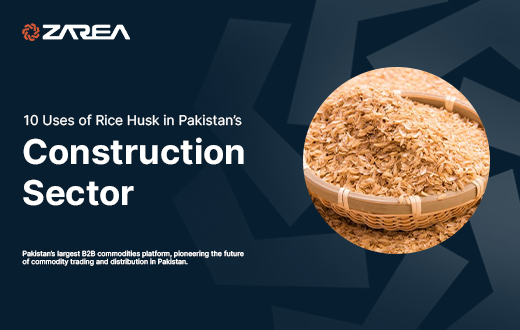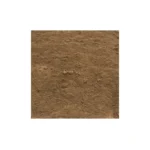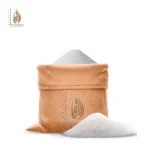Rice Husks – Nature’s Overlooked Treasure:
During the milling of rice, the outer protective layers are stripped away, resulting in two products: polished white rice and rice husks (or hulls). There are many uses of rice husk but some of them are discussed below. These husks, constituting roughly 20% of the rice’s overall weight, were previously thrown away or incinerated, releasing pollutants into the air.
Nevertheless, due to their elevated silica levels and distinctive characteristics, rice husks have transformed into a sought-after resource. Industries globally are currently investigating their capabilities, turning these structures into environmentally friendly solutions in various sectors.
10 Surprising and Sustainable Uses of Rice Husks:
In Pakistan’s thriving construction sector, there is a growing demand for innovative solutions that are sustainable and economical. One potential solution is found in an unforeseen source: rice husk. Although rice husk is frequently considered waste, it actually possesses remarkable potential, particularly in construction. Here are 10 creative applications of rice husk in the construction industry of Pakistan:
Revolutionizing Construction Materials
Rice husks are emerging as a revolutionary element in the construction sector, providing sustainable options to conventional materials.
- Natural Insulation: When placed in wall and roof cavities or compressed into panels, rice husks serve as an efficient barrier for both heat and sound. They inherently maintain a cooler environment in summer and a warmer one in winter.
- Cement Supplement: When transformed into rice husk ash (RHA) or biochar (RHB), they can serve as a partial substitute for cement in concrete mixtures. This minimizes the environmental effects of cement manufacturing, resulting in concrete that is lighter, easier to work with, and frequently stronger.
Clean and Renewable Energy Source
Rice husks serve as a remarkable, sustainable energy source:
- Briquettes and Pellets: Due to their high energy content, rice husks can be utilized as a substitute for fossil fuels in boilers and furnaces.
- Biogas Production: By anaerobically digesting husks, methane-rich biogas is generated—a clean fuel for cooking, heating, or electricity generation.
- Bioethanol and Biodiesel: Technological advancements now convert rice husks into liquid biofuels, offering a renewable alternative to power vehicles and industries.
Soil-Enriching Biochar
Rice husks can be converted into biochar, a carbon-dense substance with notable advantages for agriculture:
- Improves water holding capacity, nutrient uptake, and soil ventilation.
- Functions as an organic soil filter, eliminating heavy metals and contaminants.
- Encourages helpful microorganisms, decreasing the necessity for chemical fertilizers.
Farmers can create biochar with basic pyrolysis methods, making it a practical, environmentally friendly choice for enhancing crop health and productivity.
Hydroponic Growing Medium
Rice husks are perfect for hydroponics, providing:
- Lightweight support for plants.
- Superb drainage and air circulation to avert root decay.
- A permeable framework that takes in and retains nutrients, effectively supplying them to developing plants.
Natural Water Purification
Utilizing the capabilities of biosorption, rice husks serve as an efficient water filter:
- The silica-heavy surface attracts pollutants such as heavy metals and organic contaminants, naturally cleaning water.
- Carbonized rice husks, like rice husk biochar, improve filtration ability, eliminating additional impurities.
Do-it-yourself methods, like clay pots filled with husk ash, provide cost-effective and accessible water purification, especially in marginalized areas.
Eco-Friendly Paper Products
Some of the uses of rice husks which are entering the paper industry as an eco-friendly filler material:
- When mixed with wood pulp, husks lower manufacturing expenses and increase volume.
- Ideal for specialized uses such as packaging, tea bags, or even cigarette paper.
Although they don’t completely replace wood pulp, rice husks considerably lessen the environmental pressure on forests.
Beyond the Basics: Innovative Applications
Rice husks have sparked progress in various areas:
- Amorphous silica derived from husk ash is utilized in abrasives, filtration systems, and advanced batteries.
- Researchers are investigating their possibilities in cosmetics, pharmaceuticals, and eco-friendly packaging options.
Insulation Material
Rice husk can be transformed into insulation material, offering outstanding thermal insulation capabilities. This may assist in controlling indoor temperatures, minimizing the requirement for excessive heating or cooling.
Soundproofing Material
Rice husk can be transformed into a soundproofing material that can be applied to walls, floors, and ceilings to minimize noise pollution.
Roofing Material
Rice husk ash can be integrated into roofing materials, enhancing strength and durability. Furthermore, it contributes to decreasing the total weight of the roof framework.
The Bigger Picture: Why Rice Husks Matter
The conversion of rice husks from a discarded material to a valuable resource symbolizes the move towards a circular economy. Their use decreases environmental pollution, encourages innovation, and generates sustainable opportunities in various sectors.
By harnessing the potential of rice husks, we make significant progress towards:
- Reducing waste and air pollution.
- Conserving natural resources.
- Enabling communities through sustainable solutions.
At Zarea, we acknowledge the vast possibilities of rice husk in the construction industry of Pakistan. This is why we take pride in providing top-notch rice husk products for different construction uses. By utilizing the capabilities of this adaptable material, we strive to support a more sustainable and environmentally friendly construction sector in Pakistan.
If you’re a contractor, designer, or property owner seeking eco-friendly building options, Zarea.pk is your reliable ally. Get in touch with us today to discover more about our rice husk products and their advantages for your upcoming construction project. United, let’s create a more sustainable future for Pakistan’s construction sector.
Conclusion:
Rice husks, previously viewed as nothing more than farm waste, are now a brilliant demonstration of ingenuity. These unpretentious shells are demonstrating their value by enriching soils, powering homes, purifying water, and fueling industrial innovation.
Recognizing their potential is not only advantageous for the environment—it’s a movement toward a future where waste transforms into wealth, encouraging sustainability and creativity globally.
FAQ’s:
What is the husk of rice used for?
Rice hulls, the sturdy protective coverings of rice grains, serve as more than just a natural barrier during development—they’re full of possibilities! From sustainable construction materials and nutrient-dense fertilizers to effective insulation and renewable energy sources, these modest shells demonstrate that there’s genius in every seed.
How to use rice husks?
Enhance your plants’ growth with rice hulls! For garden beds, apply a 2-inch layer in the spring, then incorporate it into the upper 6–12 inches to create enriched, well-aerated soil. For container plants, mix 10–50% rice hulls into your potting blend for improved drainage and healthier roots. Looking for an organic mulch? Utilize rice hulls similarly to straw to retain moisture and suppress weeds. Your garden will appreciate it!
Are rice husks healthy?
Rice husks aren’t merely remnants from milling—they’re a treasure trove of nutrients and bioactive substances! This research demonstrates that these modest by-products can evolve into superfood components with remarkable health advantages. From enhancing health to eco-friendly innovation, rice husks are the overlooked treasure of contemporary nutrition.


































